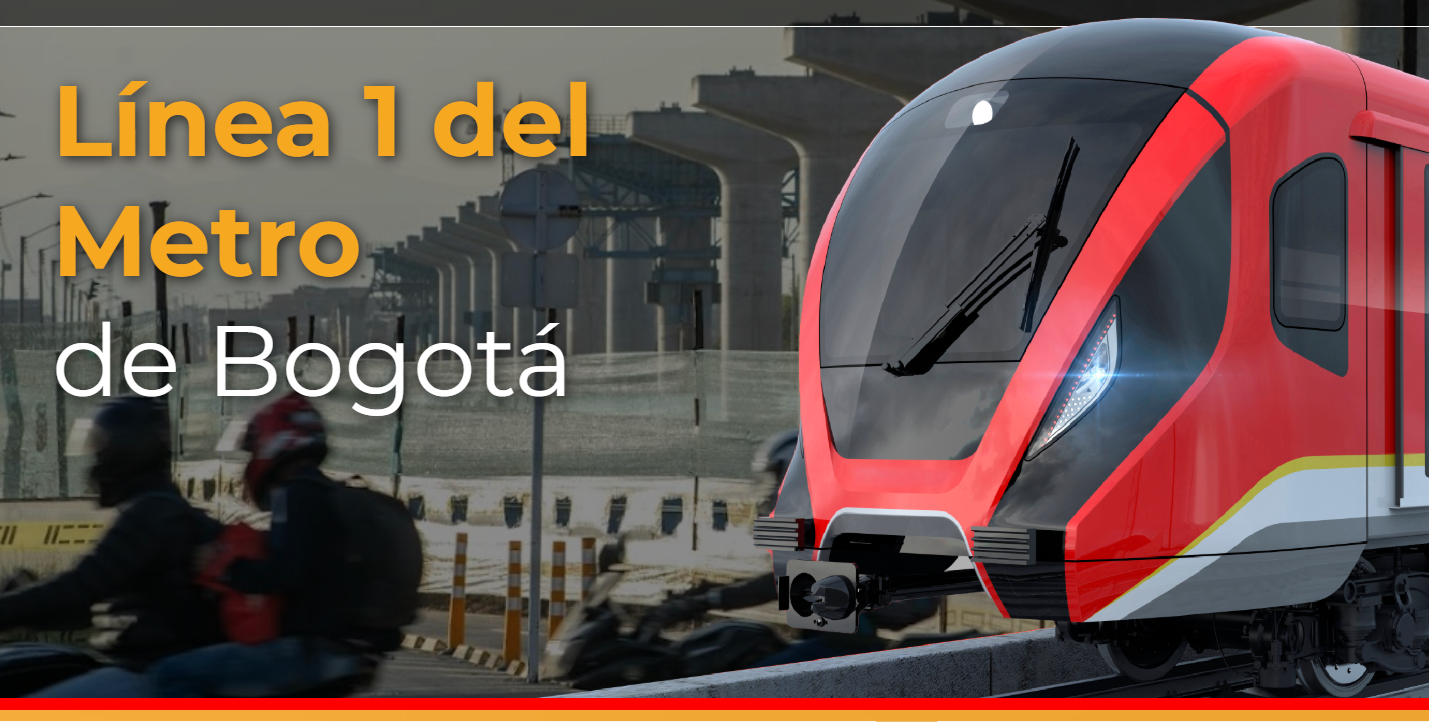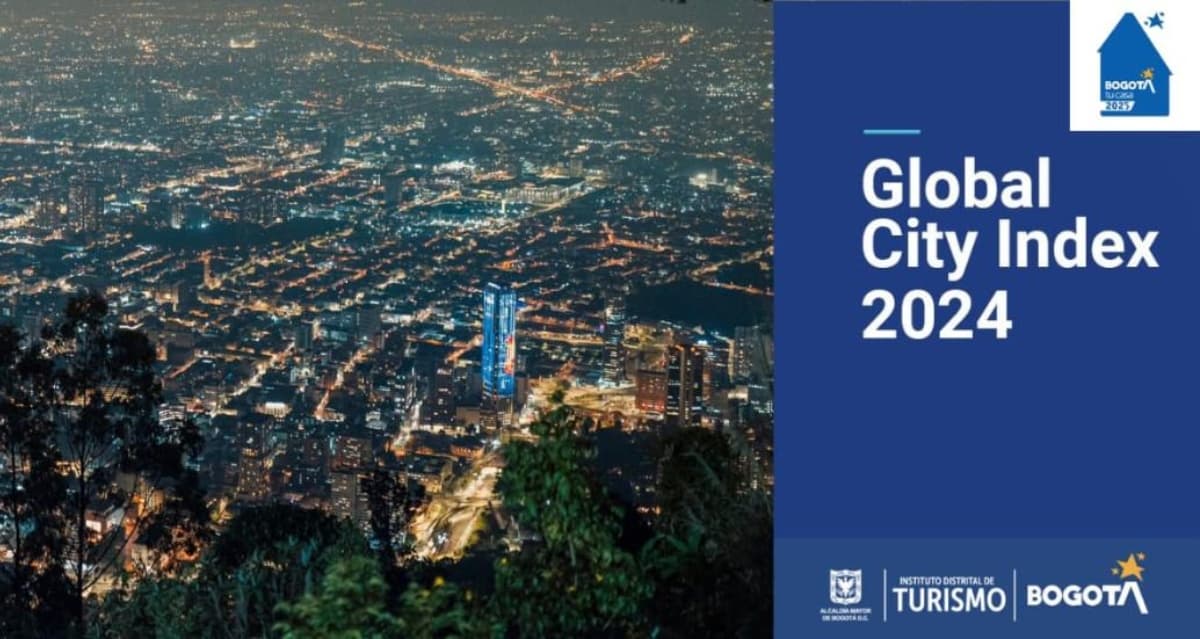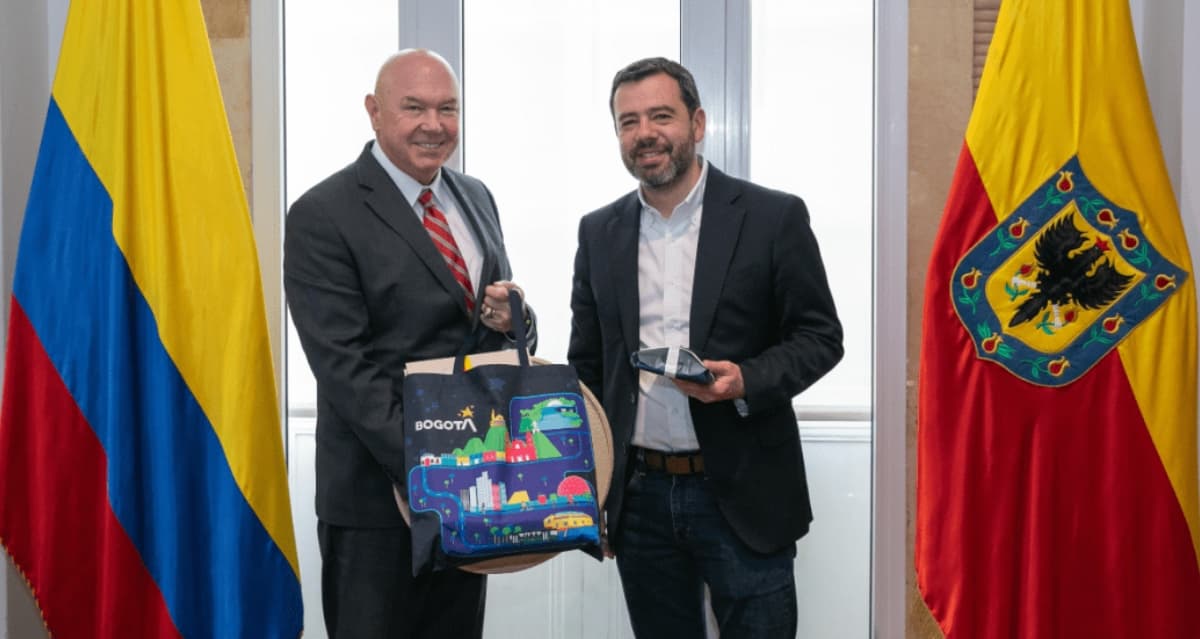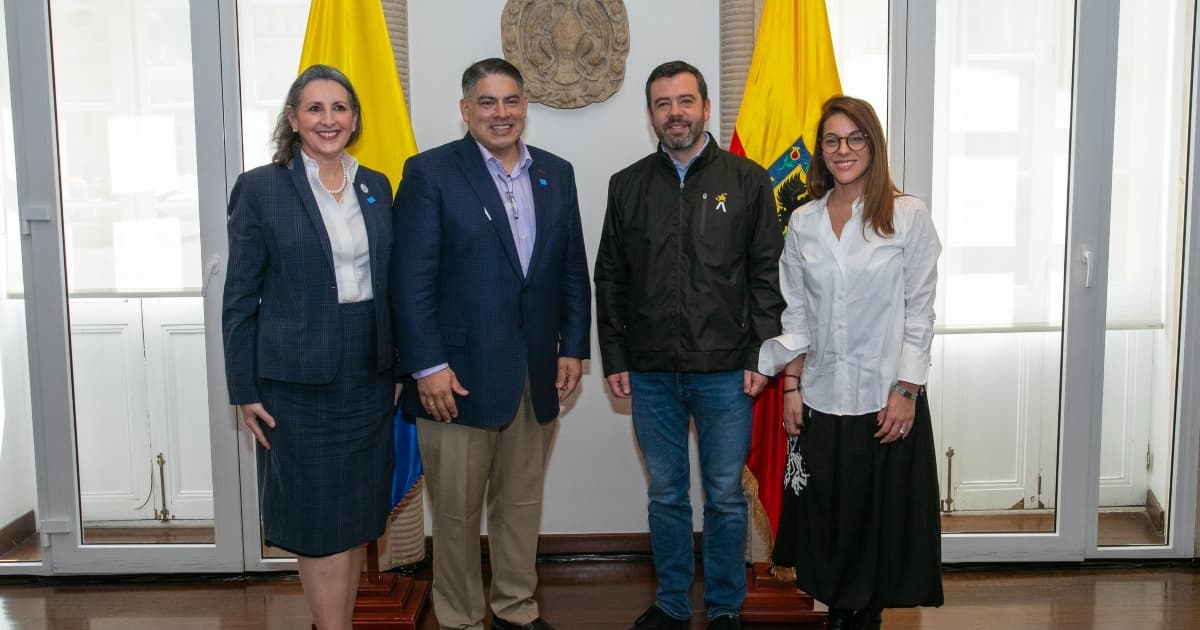Translated by Andrés Martínez Forero
At ‘Bogotá, My City, My Home’, we are working hard to secure our city’s water supply! The Bogotá Water and Sewerage Company (EAAB) has signed a commitment with the World Bank Group to develop a water security strategy in response to climate change and to improve water management in the city.
Check out:Bogotá and Montreal Strengthen Ties in Culture and Sustainable Development
The agreement, signed between EAAB and the International Finance Corporation (IFC), a member of the World Bank Group, is all about using solid data and technical solutions to guarantee that Bogotá has enough water—no matter the climate challenges ahead.
“This initiative is part of the ongoing work EAAB has been leading with the Cooperation Table since October 2024. The goal is to bring together multilateral organizations that want to support long-term, structural solutions for the city’s water supply as part of Bogotá’s Water Security Strategy,” stated Natasha Avendaño, General Manager of the Bogotá Water and Sewerage Company (EAAB).
Water Security: Ensuring Sufficient and High-Quality Water
Through the Utilities for Climate (U4C) platform, this collaboration with IFC will help develop a water security strategy that prepares Bogotá for extreme droughts and heavy rainfall, ensuring a steady supply of clean water.
IFC will provide technical recommendations to help Bogotá Water and Sewerage Company (EAAB) create a roadmap that prioritizes critical infrastructure projects and explores funding options to future-proof the city's water system.
The project has strong backing, including close collaboration with the World Bank, a $150,000 contribution from IFC, and support from SECO, Switzerland’s agency for international economic cooperation.
“We’re excited to work hand in hand with EAAB and other key organizations to create a sustainable, resilient water future for Bogotá,” said Carolina Cárdenas, IFC’s Country Officer for Colombia.
This initiative includes advanced climate risk assessments, vulnerability evaluations, and coordination with local and regional authorities to align with Bogotá’s Camina Segura Development Plan, water management strategies, and the Sustainable Development Goals (SDGs).
Along with developing a roadmap and identifying financing options, this initiative will also facilitate knowledge transfer from similar experiences worldwide.
“This effort connects with what other governments and institutions—including the IDB, CAF, the Korean government, and Japan’s JICA—are doing to secure funding and make smart, data-driven decisions for the city’s water future. Most importantly, it ensures that every decision is the right one in the face of climate change,” Avendaño added.
Dont miss: Bogotá and Sweden signed an agreement to advance the biogas pilot plant
By the first quarter of 2025, the first set of results from IFC’s technical support under this Advisory Commitment Letter is expected to be available.
Learn more details about the signing of this agreement between the Bogotá Water and Sewerage Company (EAAB) and the World Bank in the following post on social media X:
En #BogotáMiCiudadMiCasa damos un paso importante en nuestra estrategia de seguridad hídrica 🚰 con la firma de un compromiso con la Corporación Financiera Internacional @IFC_LAC, del @BancoMundialLAC. Juntos, trabajamos en soluciones técnicas para garantizar el suministro de… pic.twitter.com/2z2AlyFfzg
— Acueducto de Bogotá (@AcueductoBogota) March 6, 2025








